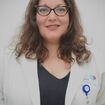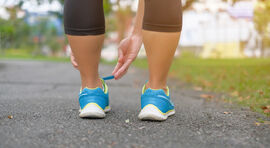מנהלי קהילה



דף הנחיות להתגוננות בפני הקורונה לסכרתיים מאיגוד הסוכרת האנגלי
הורדתי מספר סעיפים שרלוונטים לאנגליה בלבד. כל היתר רלוונטי לאנשים בכל מדינה בעולם.
שנדע ימים טובים ורגועים יותר, והעיקר לשמור על בריאותנו.
Coronavirus (COVID-19) – advice for people living with diabetes
2020-03-10
Specific advice on coronavirus for people living with diabetes
Coronaviruses can cause more severe symptoms and complications in people with diabetes, as well as in older people, and those with other long term conditions such as cancer or chronic lung disease.
If you have diabetes and you have symptoms such as a cough, high temperature and feeling short of breath, you need to continue taking your medication and call the emergency service. For those who routinely monitor their blood glucose, on the advice of their clinical team, they should continue to do this more often.
If you have diabetes and have been travelling abroad, and you think you may have been exposed to Coronavirus, follow the most up-to-date advice on what to do which can be found on the relevant government websites.
If you have diabetes and you become unwell for any reason, it’s important that you follow ‘sick day rules’.
Sick day rules
Contact your GP, , who will help you if you have any queries or if you are unsure about what to do.
Follow the advice of your GP, or Diabetes team regarding your medication if you feel unwell.
If you routinely check your blood sugar at home you'll probably need to do it more often. This will depend on your normal medications and how you use insulin.
If you don't test your blood sugar levels at home, be aware of the signs of a hyper (hyperglycaemia); which include passing more urine than normal, especially at night; being very thirsty; headaches; tiredness and lethargy. If you have hyper symptoms contact your GP.
Stay hydrated – have plenty of unsweetened drinks and eat little and often.
If you have type 1 diabetes, check your blood sugar at least every four hours, including during the night, and check your ketones if your blood sugar level is high (generally 15mmol/l or more, or 13mmol/l if you use an insulin pump, but your team may have given you different targets). If ketones are present, contact your diabetes team.
Keep eating or drinking – if you can’t keep food down, try snacks or drinks with carbohydrates in to give you energy. Try to sip sugary drinks (such as fruit juice or non-diet cola or lemonade) or suck on glucose tablets or sweets like jelly beans. Letting fizzy drinks go flat may help keep them down. If you're vomiting, or not able to keep fluids down, get medical help as soon as possible.
Attending routine appointments
People with diabetes should continue to attend their routine appointments as normal – unless they hear otherwise from their local GP practice, hospital or diabetes team.
Coronavirus Q&A
People living with diabetes
Question 1: Do I need to do anything differently to the general public living without diabetes in regard to coronavirus?
We recommend everyone follows the advice around reducing the risk of picking up infections including thoroughly washing your hands frequently, practicing good hygiene and avoiding contact with people who are unwell.
Coronaviruses can cause more severe symptoms and complications in people with diabetes, as well as in older people, and those with other long term conditions such as cancer or chronic lung disease.
Question 2: The symptoms and complications of coronavirus are said to be worse in people with diabetes. Would I be more likely to die?
Coronaviruses can cause more severe symptoms and complications in people with diabetes, as well as in older people, and those with other long term conditions such as cancer or chronic lung disease. The risk of death from coronavirus is quite low, and the majority of people with coronavirus will have a comparatively mild illness.
It is important that people with diabetes follow the sick day rules should they become ill from any illness. If you routinely check your blood sugar at home, you'll probably need to do it more often – at least every four hours, including during the night.
Question 4: What are the symptoms likely to be?
The NHS outlines the common symptoms of coronavirus on its website. These symptoms are the same for people living with diabetes. Coronavirus can have serious effects on anyone who has a long term health condition or a weakened immune system. Follow advice on avoiding catching or spreading germs as above.
Get advice straight away if you are in contact with someone with confirmed coronavirus, or if you need medical help.
Question 5: What should I do if my clinician is diagnosed with coronavirus?
If your clinician is diagnosed with coronavirus and you have not seen them recently, then you are unlikely to have been exposed to coronavirus. The risk associated with any healthcare workers who become infected with coronavirus is assessed on a case by case basis and appropriate action taken. You should follow the advice given to you if you are contacted because you have been exposed to coronavirus in this way.
Question 6: Should I go to work / not see friends / not see friends who’ve travelled from affected areas?
We recommend everyone follows the NHS and government advice around reducing the risk of picking up infections, including following the latest guidance on avoiding crowded places if this becomes necessary, or coming into contact with the condition.
We recommend everyone follows the government advice about what to do if they are concerned they have come into contact with someone with the coronavirus.
Family, friends or carers of people living with diabetes
Question 8: I have been exposed to the virus and am a carer for someone with diabetes. What should I do?
We recommend everyone follows the health authorities' advice around reducing the risk of picking up infections including thoroughly washing your hands frequently, practicing good hygiene and avoiding contact with people who are unwell.
If you are advised by emergency staff or other medical professionals to self-isolate then this would include minimizing close contact with others.
Question 9: I am a carer to someone with diabetes. Should I be doing anything differently?
We recommend everyone follows the health advice on reducing the risk of picking up infections including thoroughly washing your hands frequently, practicing good hygiene and avoiding contact with people who are unwell.






.jpg)